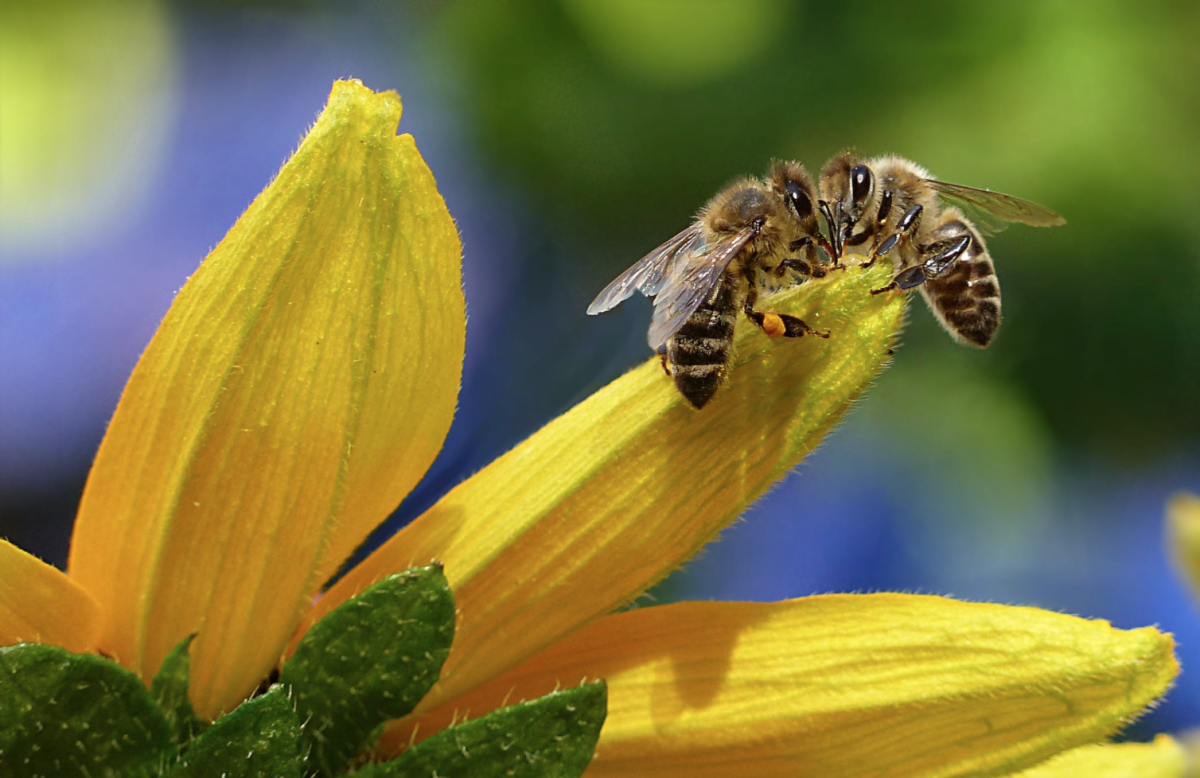When I was younger, I remember watching the Bee Movie and thinking how much fun it would be to be a bee. Flying, collecting pollen, having a close community, and living in a cool hive all seemed so fun. Of course, there were also the issues of getting lost easily, getting killed by humans and other animals, my hive being destroyed, trapped by humans, sprayed by pesticides… But at the time I was willing to overlook these things. However, the reality of a bee’s life does not seem as fun as it was advertised in the movie.
Bee populations have been rapidly decreasing over the past few years. According to the National Geographic, over the past 15 years bees have been subjected to what is known as “colony collapse disorder.” Reports show that some regions have lost up to 90% of their bee populations. Currently, one of the biggest threats to bees is the varroa mite, a parasite that invades hives and spreads diseases. Other major threats include habitat loss and exposure to pesticides that spread disease. These dangers affect all species of pollinating bees. In fact, there are about 20,000 species of bees, many of them pollinators, although most people only know about honeybees.
Honeybees are important, of course, but they often overshadow other pollinator species. These black and yellow striped honeybees can be thought of as the ‘super models’ of bees, leaving many other species to go along as unsung heroes. Bumblebee populations have been decreasing at a faster rate than honeybees and were recently placed on the endangered species list in the US. Bumblebees possess certain traits that honeybees do not, such as their size and their extra furriness and provide a different valuable service to plants. Tomato plants rely on bumblebees because they bite the flower and vibrate to shake off the pollen in a way other bees do not. Honeybees are actually less efficient than other bees and pollinating insects. The intense focus on conservation of honeybees also overshadows other important pollinators that are not bees such as bats, hummingbirds, and flies which all provide necessary pollinating services to the ecosystem. In fact, the food supply for our entire ecosystem depends on pollinators. So, while honeybees play an important role in our ecosystem and make delicious honey, when it comes to concerns about pollination other bees should be our focus: “keeping honeybees for pollinator conservation is like keeping chickens for bird conservation,” says Mace Vaughan, the co-director of the Pollinator Program at the Xerces Society which is a non-profit partnered with the USDA. Many bee lovers that populate social media have shared photos of bees falling asleep together in flowers covered in pollen and sometimes holding hands. These adorable images help us see bees as gentle creatures worthy of our respect and protection.
What can we do to help? There are a number of different ways people can help increase bee populations. Decreasing use of pesticides in your lawns and gardens, building gardens that give insects habitats, and focusing on pollinator friendly plants will help bees, as well as our ecosystem in general. But the place we can help bees the most is in policy changes. The Pollinator Partnership Action Plan was introduced in 2016 by the Obama Administration. This plan helped honeybees and monarch butterflies by aiming to enhance 7 million acres for pollinators and so far 700,000 acres have been put aside towards this plan. Long live the bees!




